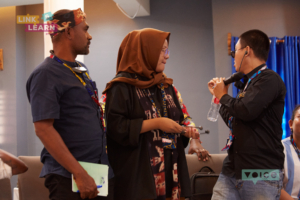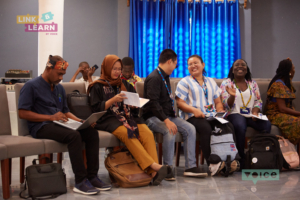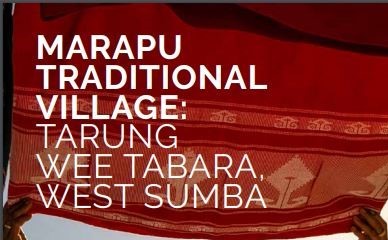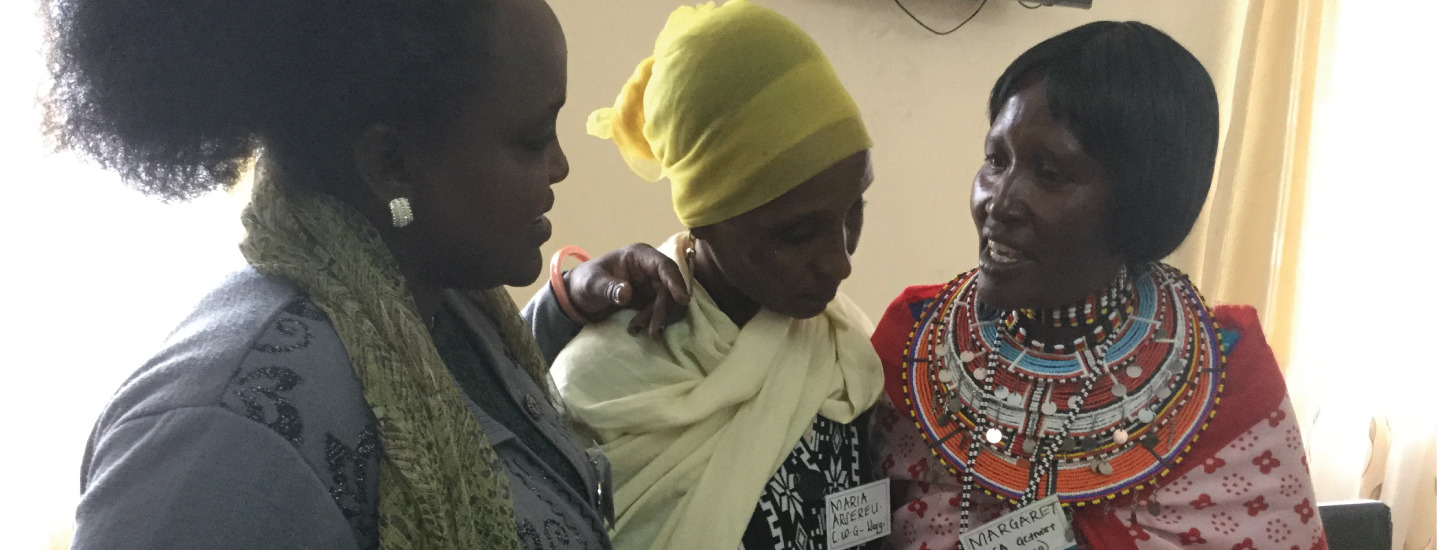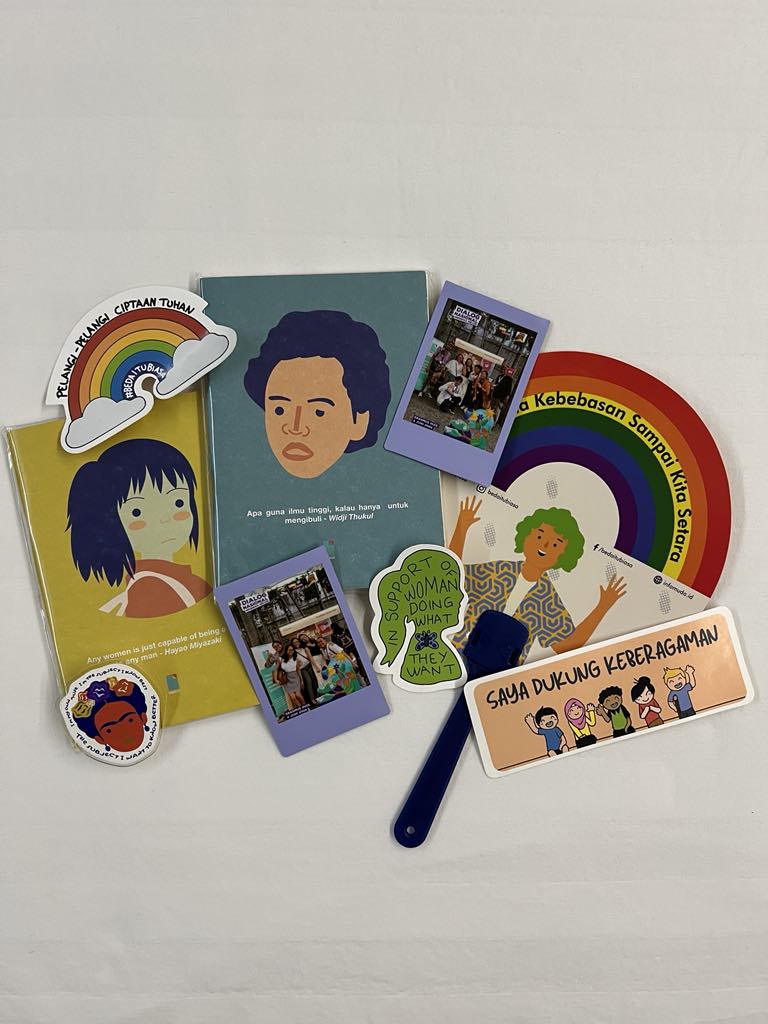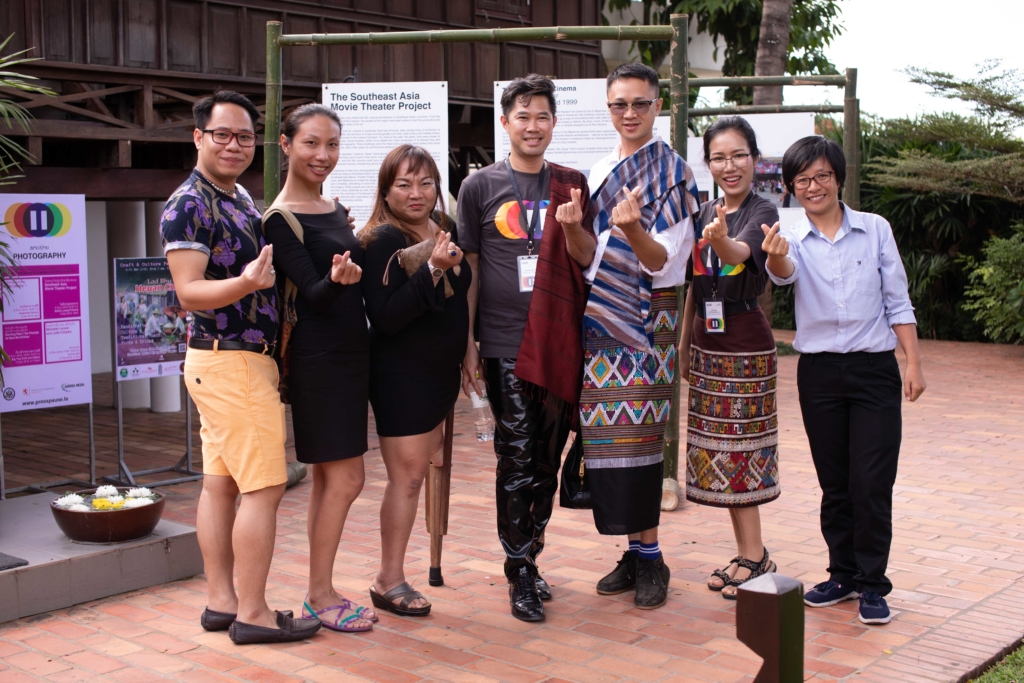Inspiring Indaba: Insights from Indonesia
By Antonius Jawamara (Sumba Integrated Development), Tika M (PPSW Pasoendan) and Erlangga Saputra (Pamflet)
As promised, we come with post-Indaba goodness! The global learning event was enjoined by participants from all Voice-supported countries, one of which is Indonesia. To start off the series of reflections, let us hear from the participants from Indonesia. Below are their reflections from the amazing learning event held from May 9th-13th 2023 in Cotonou, Benin.
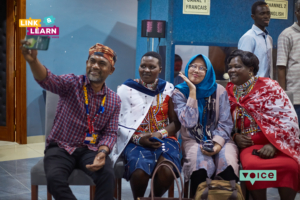
From Antonius Jawamara (Sumba Integrated Development):
The Indaba in Benin was my first experience abroad during my 17 years of working with the Non-Government Organisations (NGO) sector. It was a very special opportunity to meet with Voice grantee partners from around the world. I started my journey from Sumba Island in far East Indonesia on 6th May 2023 and arrived in Cotonou, Benin on 8th May 2023 (with a flight duration of 21 hours!).
It was a very rich experience and exposed me to a wide range of people, groups and issues within the NGO sector . It taught me about real inclusion and leadership. The event was a place where great people meet to learn from each other and share their experiences and insights.
Some points that inspired/surprised me during the Indaba:
- The first thing that impressed me was the activity methodology designed by the organisers. The methodology was very participatory and the group discussions opened up space for all participants to express their opinions.
- Great facilitators like Emma Mengo, Kayla Lapiz and Cedric Owuru inspired me to integrate participatory methods in my own practice and the topic of cross-generational leadership, open space/unconference was particularly interetsing. The facilitators were very inspiring to me, because they were able to provide understanding to the participants about the importance of participatory discussions.
- Zusana (Kenya) shared about the struggle within the Tapiyak Lepolusi community regarding the rights of Masai women subjected to “forced marriages” carried out by their families. In traditional Masai culture, fathers often force their daughters against their will to marry older men. Masai women have experienced challenges trying to save their daughters from this cultural practice which is detrimental to womens rights. Most of the girls who were forced to marry were aged between 12 and 14, and some even younger. Not only are they too young for sexual intercourse and childbirth, this practice also usually forces them to leave school. This story inspired me to fight for the civil rights of minority groups, such as the women within the Marapu indigenous group in Sumba.
- Another thing that really inspired me was the story from Elie Chansa from Tanzania (PINGOS). This organisation advocates for indigenous peoples rights with a media focussed approach. Various platforms are used to influence government policies so that the rights of indigenous peoples and local beliefs are fulfilled by the state. Advocacy utilising media approaches are very effective in influencing government policy. This has encouraged the Lii Marapu team to further integrate video advocacy in advocating for the rights of the Marapu indigenous people in Sumba.
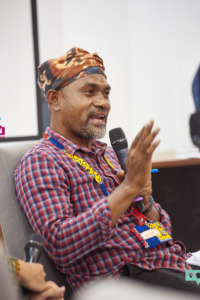
From Tika M (PPSW Pasoendan):
The Indaba was my first experience to participate in activities abroad. There were so many interesting experiences that I got when I participated in the activity together with the Voice grantee partners from various countries. I started my journey on May 6 from Sukabumi, Indonesia and arrived in Benin on 8th May 2023.
The Indaba activities provided a lot of inspiration to me as well as various inputs that I can develop and implement in the future. Some of the points that really inspired me included:
- I can learn and share with friends from various countries about some of the advocacy issues they are fighting for. Especially on advocacy issues regarding the elderly, we get inputs regarding the elderly/older people and mental health. This is related to the intergenerational learning topics, as well, which can be used as material in carrying out the empowerment process between the elderly/parents and the youth. This is important to do considering that the youth are critical actors in advocating elderly rights.
- I feel very happy because I was in an inclusive space. We can all share stories about various things that motivate us to fight for social inclusion issues. I heard many stories that were very touching especially during the My Cover Story session. Everyone has different experiences not limited to age and has knowledge that can be told and can be an inspiration for others.
- The method used by the facilitator was very interesting; participants could participate in each discussion session. Although there were language barriers, all participants could contribute their thoughts well. The method used by the facilitator was very interesting that I want to learn about it and implement it in other forums.
- In addition, another impressive thing is that I can hear various stories from various countries regarding advocacy issues regarding empowerment of women in the grassroots. I heard a story from Jolene (Kenya) regarding women’s empowerment in their community. There is a ritual to hand over children to other families for marriage and that they cannot remarry if they are divorced. Another striking thing is some women cannot read and write so they cannot inherit lands. Friends from Kenya, such as Jolene, helped in empowering women by forming empowerment groups and conducting capacity building for women so that women could discover what they are capable of. Jolene explained that there are now several women who are members of parliament in Kenya.
- I also heard a story from Fanta (Mali) around advocating for regulations against gender-based violence in schools. There is a lot of violence that occurs in schools and while there are already regulations about this, they are not well implemented. It becomes a joint task to oversee the implementation of the law.
- I received input on leadership, too, specifically on how it can help eradicate injustice in our society. One effort was championed by friends from Uganda, where farmers have been renting their land from political leaders for four years. Leadership is needed to build the courage of farmers to convey their rights; and young farmers are also involved in this advocacy. In the Philippines, a similar advocacy was carried out by conducting consultations and paralegal trainings to help farmers be more knowledgeable about agrarian development and laws. Leadership is about leaders who are firm, consultative and responsive. That is, always consulting the needs of the community and responsibly taking action.
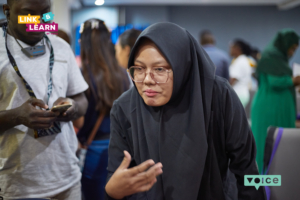
From Erlangga Saputra (Pamflet):
During the Voice Learning Indaba in Cotonou, Benin, one moment stood out to me as the most inspiring and memorable. It was the session on intergenerational learning that I was privileged to facilitate. This session provided a forum for participants from various nations, including Nigeria and Laos, to share their experiences, challenges, and successes regarding intergenerational and leadership learning initiatives.
Meeting linking and learning facilitators from Nigeria was an experience that left a lasting impression on me. They presented their research on the intersection between senior citizens and the social justice system. Their findings shed light on the systemic barriers and discrimination older individuals face, which frequently impede their access to justice and social services. This experience underscored the significance of advocating for the rights and well-being of marginalised communities, including the elderly.
A further influential encounter was with the participants from Laos, who had successfully produced an audio-visual book containing the stories of Voice Laos grantees. This inventive method not only captured the essence of the grantees’ work, but also made it accessible to a broader audience. The encounter highlighted the power of multimedia in storytelling and information dissemination, which Pamflet could leverage to amplify the voices of Indonesian grantees and engage a larger audience.
These interactions and the overall Indaba experience have significantly impacted my work, advocacy, and Pamflet’s broader goals. Initially, the session on intergenerational learning enhanced my comprehension of the significance of bridging generational gaps and fostering mutual learning and collaboration between different age groups. It reinforced the need to develop initiatives that empower and involve both young and elderly populations.
In addition, the interactions with participants from Nigeria, Laos, and other countries have broadened my perspective on effective communication and knowledge-sharing techniques. I see the possibility of incorporating multimedia approaches, such as audio-visual books, into our organisation’s activities in order to increase the impact and reach of the stories shared by Voice Indonesia grantees. This may involve the production of short films, podcasts, or interactive digital content that showcases the work and experiences of our grantees in an engaging and approachable manner.
Overall, the inspiring and striking moments at the Indaba have instilled in me and Pamflet a renewed sense of motivation and purpose. They have strengthened our commitment to intergenerational learning, leadership development, and advocating for governments and public service leaders to implement existing laws and policies. We intend to incorporate the lessons learned, innovative approaches, and collaborative networks established at the Indaba into the ongoing work, linking and learning activities, and advocacy efforts of our organisation. By utilising these insights, we hope to effect meaningful change and amplify the voices of Indonesia’s marginalised communities.
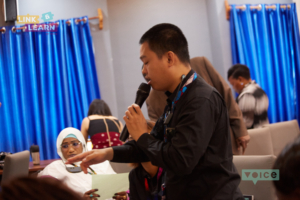
What a way to take the participants back to the Indaba memory lane and to welcome others who were not there through this thoughtful sharing. Massive thanks to the three contributors for refreshing us on what the Indaba is, how it went, there key takeaways and plans going forward!
